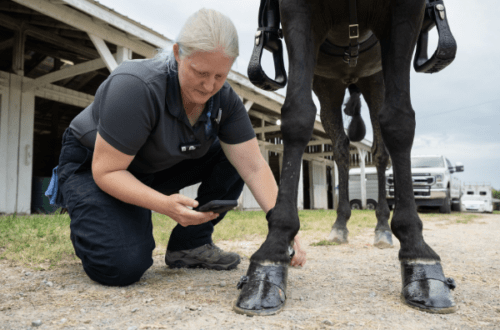New ESC Medication Guidelines Outline Allowed Therapeutic Treatments
June 7, 2024 – Now available online are the ESC Medication Guidelines that outline allowed therapeutic treatments. “One positive change is allowing medications prescribed for Cushing’s and Navicular hoof disease at ESC events,” said Shane Darnell, ESC co-founder. “These medications, that are given daily at home, will be allowed to continue on the regular schedule without a withdrawal time.” A single ESC Medication Report will need to be filed at the start of the show with the prescribing vet’s contact information, diagnosis and prescription instructions. This single form will be sufficient for the duration of that show for those medications.
Jackie Hale continued, “Another allowed treatment that we are very please to be able to offer is the use of Acepromazine for ‘Clip & Ship’ purposes.” ESC’s updated guidelines also include Generally Allowed treatments which are the classical NSAIDs, a single corticosteroid, and muscle relaxant. Shock Wave therapy is also permitted when administered by or under the direction of a Licensed Vet. Withdrawal times for medications must be observed before competing, but no Medical Report Form is necessary for these allowed medications when used according to guidelines.
Controlled Substances – are treatments to address an illness or injury when diagnosed and prescribed by a Licensed Vet. The withdraw times are generally >24 hours and a Medical Report form is required, but may be filed by the Agent/Trainer. Substances classified as Banned are not permitted at any ESC event.
The ESC Controlled and Prohibited Substances database includes measurement guidelines that have established dosing amounts and withdraw times. The ESC databases for Allowed, Controlled and Banned substances are searchable and include drop down notes section with additional information. In correlation with the updated Medication Guidelines, ESC has also strengthened the Penalty Structure for D&M violations. The latest version of our 2024 Standards & Guidelines is available here.
“We’d like to thank Texas A&M laboratory for their guidance in developing our Drug and Medication Policy that we feel takes a common sense approach toward insuring the safety and welfare of our equine partners,” said Shane Darnell. “Additional thanks to the veterinarians in our show horse industry who came forward with their advice, and to our Professional Advisory Council for their input.”






